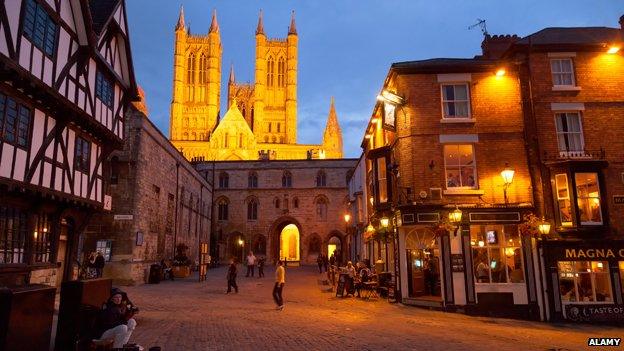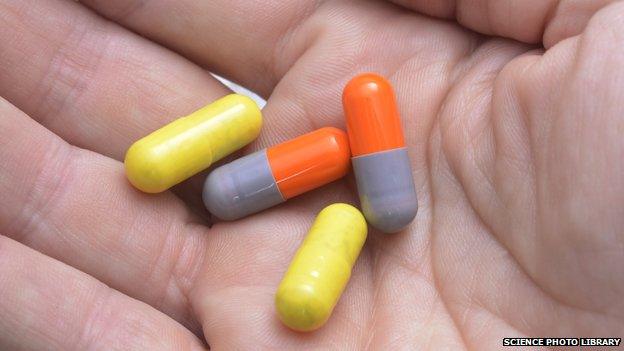Where's the evidence for Lincoln's legal high problem?
- Published
- comments

Are legal highs really causing anti-social behaviour in Lincoln's historic city centre?
The council insists they are and will rubber-stamp an area ban on their consumption at a meeting tonight. The move is being watched by local authorities across the country.
The evidence that legal highs (officially described as new psychoactive substances or NPS) are the cause of public disorder comes from a survey conducted as part of what the council describes as a "consultation". Replies were received from 196 local people.
"Around 80% of those who replied, who were mainly residents and businesses, said they had suffered problems caused by NPS in the area," the council claims in a statement.
But the source for this is the reply to a much broader question: "Have you experienced any issue in relation to Anti-Social-Behaviour linked to Alcohol, New Emerging Drugs (Legal Highs) or illegal substances?"
The 80% figure covers those who have witnessed unattractive behaviour by drinkers and clubbers, whatever they may have taken.
Indeed, it would be too much to expect residents to know whether a young man or woman vomiting into the gutter had been on Bailey's, Bliss or Ecstasy. Or had fallen victim to a dodgy curry.
On the BBC Today programme this morning, the council official who proposed the ban, Sam Barstow, was challenged as to whether he had good evidence that the legal high problem was so serious it required a council order.
"Part of the local authority approving this order involves a consultation and through that we saw very large numbers of individuals in the city centre saying they had been directly affected by use of these substances and the anti-social behaviour it causes," he told the programme.
"We have had to satisfy our elected members that we have evidence that there actually is an issue and that it is having an impact on the quality of life of the people that might live, work or visit that particular area."
There's another issue with this 80% figure. The consultation was not a formal process of the kind local authorities may be required to undertake. It was an online affair, via a local website called The Lincolnite (see update at the bottom of this article). To reach the questionnaire you had to click on a story about the council's proposal for a "legal-high" ban and then click again to do the survey. So the people who filled out the survey were entirely self-selecting.

Consultation over legal highs took place via a local website
Ask yourself this - who is more likely to fill out a questionnaire on legal highs and public order in the centre of Lincoln? Those who worry about such things or those that don't?
What strikes me as extraordinary is that a fifth of people who took the trouble to answer all the questions had not experienced any issue. The results are meaningless as a measure of general public attitudes.
The council proudly tells me that the article which included the link to the survey was shared 1,462 times - "a substantial reach," they say. But of those only 156 stated they had ever experienced an issue in relation to ASB in central Lincoln - whether it involved NPS or not.
Lincoln city centre, like many with a vibrant night-time economy, has its share of problems. There were 958 reported incidents of anti-social behaviour in 2014. But there is scant evidence that the problem is getting worse.
Indeed, an official HMIC inspection report on the county police force in December notes that "reported incidents of anti-social behaviour have fallen in Lincolnshire over the last year".
Public order offences in the town centre have fallen 5% in the last year, according to detailed figures on the crime map for the area.
So, is there any evidence of a significant problem with people behaving anti-socially having taken legal highs in Lincoln city centre? Not that I have seen.
UPDATE 15:30 GMT
City of Lincoln Council have contacted me to say the online questionnaire was also available via the council website and that, as well as a local media campaign, they directly approached a number of local organisations and community groups for their input. A spokesman said the process was a formal consultation.